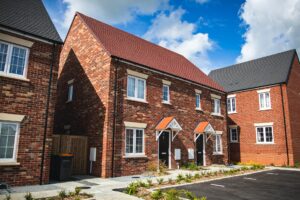Buying your first home is an exciting time, but it can also be very stressful if you don’t know where to start and don’t want to end up making costly mistakes. Here, we have compiled the most common first time home buyer mistakes to avoid.
1. Not knowing how much you can afford
One of the first steps is to find out how much you can afford. If you don’t know this, you might waste a lot of time by visiting homes that you can’t afford at the moment or pay back comfortably. Understanding your budget is key to finding the perfect first home. We would never recommend viewing a home outside of your comfortable budget because inevitably, you’ll leave disappointed. Get in touch and we can discuss the price range that you can afford.
2. Starting with a very small deposit
Although it is good news that the government is now encouraging banks to offer 95% mortgages (that is, mortgages that you can get if you can pay a small deposit of 5% of the value of the house) it is better to wait until you are able to pay a bigger deposit, as this will significantly reduce the monthly payments. If you can, aim to save at least 10-15%.
3. Not comparing lenders
One of the most common first time home buyer mistakes is not comparing enough lenders. Don’t settle for the first bank you speak to. It is much better to speak with a mortgage broker that can advise you further and compare different options for you to find the best one. Speaking with an independent mortgage advisor will also help you understand what the implications of your mortgage will be in the long run, so that there are no surprises.
4. Spending all your savings
Spending most of your savings on the deposit is a big mistake, as you might need those savings for an emergency. Aim to have six months of living expenses available in case you need them. Especially now that you will have to pay for a mortgage every month, consider what would happen if something doesn’t go to plan. For instance, consider what impact it would have on your life to lose your job at this stage and whether you have enough savings to cover any expenses during a period in which you aren’t able to make money.
5. Getting the wrong mortgage
It is of the utmost importance to speak with an expert independent mortgage adviser that can help you understand all the implications of the different types of mortgages that are available for your particular case. Many buyers choose a 35-year fixed-rate mortgage, which might not be the best option for you. Having to repay a mortgage in 35 years means you will end up paying a lot of money in interest. By reducing the number of years as much as you can, you will save money in the long run.
6. Not making additional payments
If you still decide to go with a 35-year mortgage, you can also greatly reduce the number of years of repayment by making additional payments toward the principal as often as you can afford to do it. Consider this option if you are in a good financial position once you start making your mortgage payments, as you would be saving a lot of money.
7. Not paying attention to your credit score
Lenders will make sure that your financial profile is stable in order to approve your loan. If you are looking to get approval for a mortgage, avoid taking out any new loans or opening or closing new credit card accounts that can threaten your loan approval. It is also important to always pay your bills on time and in full every month.
8. Not understanding all the costs involved in buying a home
It’s not just your monthly payment and interests that you will have to pay. Unfortunately, owning a home comes with many additional costs. Make sure you budget for all sorts of expenses, including property taxes, various types of insurance, furniture, etc.
Repairs can also be very costly, depending on the state of the property that you purchase. Typically, as a first-time owner, you will purchase an older house, which means repairs and maintenance can be quite expensive.
9. Paying more than you can afford for the house of your dreams
Don’t pay more than you can afford even if you think you have found the perfect house. It is often much more sensible to stick to your budget and make any improvements to the property to adapt it to your needs.
10. Choosing the house over the neighbourhood
Even if you think you have found the perfect house, be cautious. The area in which the house is in is as important as the house itself, so make sure you like the place where you will be living. For instance, what are the parking options? Is it a safe neighbourhood? What are the public transport options available? Do you have all the services you need at a short distance?
Ready to start the process of buying your first home? Remember that speaking with an independent mortgage broker will help you dissipate any doubts you may have about the process, so don’t hesitate to get in touch.



